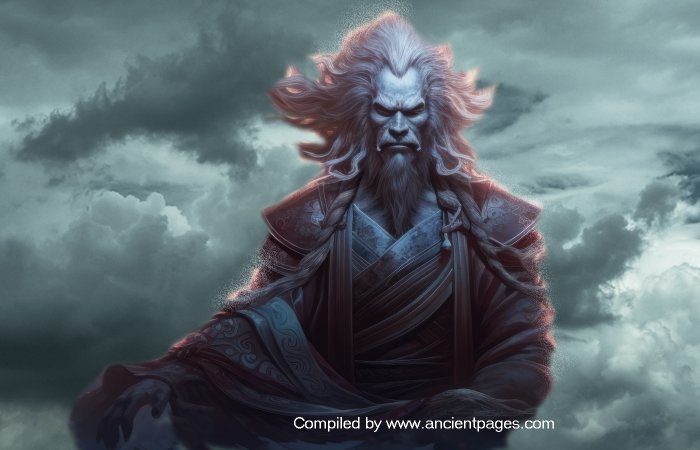Yu Shi ‘The Master Of Rain’ Revered Deity In Chinese People’s Beliefs

A. Sutherland – AncientPages.com – Deities associated with rain have been revered across various cultures and religions worldwide for centuries.
Their influence was particularly prominent in Eastern regions and certain parts of Europe, Africa, and the Americas. People believed these rain-related divine entities could benefit or harm humanity, so honoring them by praying and presenting offerings was essential.
They continue to symbolize rain and floods’ life-sustaining and destructive aspects.
Droughts in ancient agricultural societies of China were seen as divine retribution, but sufficient rain to ensure a good harvest was also essential for agriculture and the people’s survival. People sought answers to the question of when rain would come. Only the proper union of the feminine principle ‘yin’ with the masculine ‘yang ‘ was believed to yield rain.
Farmers in ancient China relied on rain deities who had the power to harm or benefit people. Like many others worldwide, their society had confidence in the concept of deities to make sense of different aspects of weather and natural phenomena.
Yu Shi, known as the Rain God in Chinese mythology, still holds a significant place in Chinese people’s beliefs. This revered deity is traditionally associated with weather manipulation, mainly rain control.
Like many other gods, Yu Shi is represented in various forms. He’s typically portrayed as an elderly man with a lengthy beard dressed in green garments, a raincoat, and boots. Other Yu Shi’s depictions show him with two snakes in his hands. Occasionally, one more snake appears to come out from his ears.
In beliefs, Yu Shi is frequently linked with snakes, which are considered to serve as his emissaries.
Other – most common – depictions of Yu Shi show him standing on a cloud with a jug-like vessel with water.
His vessel is not ordinary but a magical one.
One droplet from his water jug can trigger rainfall, providing much-needed irrigation to parched and thirsty farmlands of the planet. However, Yu Shi can also be dangerous in his actions when he sends a devastating deluge.
Farmers mainly rely on Yu Shi in Southern China during severe drought. They firmly believe he is the celestial power responsible for bringing the much-needed rains to nourish their crops.
The best they can do is to show their reverence through prayers and offerings, hoping for prosperous harvests.
Yu Shi, the Master of Rain, is closely linked with another divine entity, Chisongzi (or Chi Songzi – “Lord of the Rains”).
It often seems that these two divinities – Yu Shi and Chi Songzi – represent the same deity but with two different names (nicknames).
In one legend, Chi Songzi was said to have ended a severe drought that occurred during the reign of Shennong the Chinese’ King Of Medicines’ and inventor of farming tools and herbs for treating people’s diseases.
Yu Shi as Chi Songzi. Illustration made (1596-1650). Credit: Public Domain
In Chinese mythology, Chi Songzi had many supernatural abilities, which included saving the world from a terrible drought, creating rain, riding clouds, and passing through fire without being burned.
He had a man’s face, a snake’s body, and a bull’s head, while his nose was that of a tiger. He was also green, which was the symbol of the color of vegetation.
According to the legend, “he plucked from a neighboring mountain a branch of a tree, soaked it in the water, and with it sprinkled the earth. Immediately clouds gathered, and rain fell in torrents, filling the rivers to overflowing…” 1
After Chi Songzi’s birth, nine wells suddenly appeared in the ground, and millet fell from the sky in rain.
He was rewarded by being given a place among the heavenly beings in paradise on Mount Kunlun (K’un-lun), and later, was called the God of Rain. His depictions usually showed him with a magical bowl.
Written by – A. Sutherland – AncientPages.com Senior Staff Writer
Copyright © AncientPages.com All rights reserved. This material may not be published, broadcast, rewritten or redistributed in whole or part without the express written permission of AncientPages.com
Expand for references






